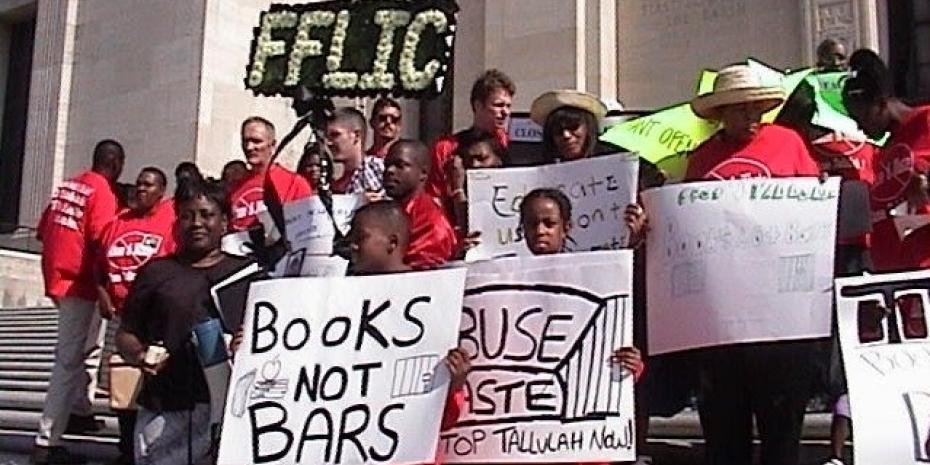Let Kids Be Kids!

How young is too young for a child to be suspended from school? According to the state of Louisiana, which suspended over 1,000 Kindergarteners last year, there is no age cut off. However, thanks to a bill proposed by State Senator Weston-Broome that might soon change.
Broome’s bill, SB-54, would prohibit schools from suspending students in grades K-3, and mandate their referral to counseling or holistic discipline intervention. At FFLIC, we are calling for a moratorium on all suspensions and expulsions, whether a child is in pre-K or in high school. In Louisiana, nearly 1 in 10 high schoolers receives an out-of-school suspension and nearly 1 in 5.5 middle school students receive an out-of-school suspension. Most of these are African American students, who make up 67% of out-of-school suspensions statewide, but only 44% of the Louisiana’s student enrollment.
Photo courtesy of Family and Friends of Louisiana's Incarcerated Children (FFLIC)
Still, Senator Broome’s bill is a welcome start. It is hard to see how suspending or expelling 4-year-olds so they can reflect on their behavior is age-appropriate, educationally sound, and conducive to their success in school or in line with normal childhood development. Instead, we can see it for what it is: denying a very young child their right to an education.
Other school districts agree. Chicago, Syracuse, Minneapolis, New Jersey, and California are just a few examples of districts that have made changes to their policies to rule out certain types of exclusionary discipline for kindergarteners and students in early grade levels. Other states, like Connecticut—and now our own Louisiana—are considering legislation that follows the growing trend towards reasonable, age-appropriate approaches to school discipline.
Some children today have proven difficult for teachers and parents to deal with. This is also true of some children throughout history, both poor and privileged, of all races and backgrounds. They may act out in class. They may bring issues to the classroom that the teacher is not equipped to deal with: experiences of abuse, trauma, learning disabilities, and anger. FFLIC is sensitive to the plight of teachers and school administrators who simply do not know what to do.
But the solution is not suspension. Suspensions lead to the child divesting in education and too often heading toward the school-to-prison pipeline. Suspension says, “We don’t have time to support you.” That message is loud and clear to the 12th grader, and it’s also loud, albeit confusing, to the 2nd grader--and to his classmates, his friends, and his parents.
Instead of relying on suspension for children, we need to hold schools accountable to state laws to provide professional development for teachers and administrators on Positive Behavior Intervention Supports and restorative justice in our schools. We must ensure that the first question asked is, “What is in the best interests of this child?” instead of thoughts of what punishment a child deserves. Caring discipline is just as important as classroom rules and boundaries imposed by schools and we cannot begin to think of our 1st graders as “troublemakers” to be eliminated from the classroom. That 6-year-old will someday grow up, may someday be our neighbor, our friend, our colleague. We should be as invested in that child’s education as we are in the education of every child who sits obediently and patiently at the front of the classroom.
Part of the role of public education is, and has always been, socializing children. This means helping them interact with others, teaching critical thinking, explaining right and wrong, and nurturing them--through all their missteps--into intelligent, well-rounded, kind adults. It also means working with their families and communities to establish high expectations and clearplans for success.
Senator Broome’s proposed bill will help ensure that schools stay true to that goal for all our children, especially the very young ones.
